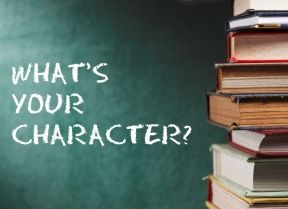
Education
From Grit to Growth
Transforming education from desperation to inspiration
Posted February 12, 2015

Schools can be places of desperation. Students who desperately would rather be somewhere else. Teachers who desperately want students to engage more with lessons. Administrators desperately dealing with disruptive students, demoralized teachers, and unhappy parents and citizens. Grit is a survival skill in desperate situations. It is what has lately been promoted in some schools as part of “character education”. We should aspire to so much more than adaptive endurance. We should be focusing on transforming education from places of desperation to places of inspiration and unfolding what’s best in us all.
I always hated school. I found it boring, largely irrelevant, and often annoying. And, I spent about 18 years of my life making the best of it, performing well enough to climb the ladder into competitive graduate schools and earning a Ph.D.
I recall with great clarity a day in my junior year of college when I realized that my enduring love of learning, my abounding curiosity, and my incessant drive to create anew had no place in my academic striving. They were impediments to my scholastic achievement. I could not afford to spend hours composing a poem that was inspired by studying amoeba. Nor could I spend my evenings composing music that may have been triggered by a chemistry lesson. I needed to focus on what I was expected to learn, and my learning capacity left no room for all the “extra-curricular” activities that enlivened my heart and soul. So, I made a decision then and there. I remember the moment. I decided to flip off those parts of myself in the name of achieving academically. I became a man on a mission, and as expressed in the lyrics of the famous Don McLean song from 1971, “that was the day the music died.”
I have been asked many times across the years, “If school was such a negative experience for you, why did you stick with it for so long”? The answer is, “I have grit”, and a vision for where I want to go. I can be very persevering. I can delay gratification. I can withstand punishment without becoming demoralized. And, I have enough innate ability and acquired learning skills to have been able to perform well. School was a means to an end – the end being a profession that was an endless playground for my love of learning, my creativity, my curiosity.
Though I suppressed core parts of myself to get to where I wanted to go, once I arrived, those parts that had been reduced to little embers grew back into the roaring flames that are the essence of who I am. Core parts of ourselves can be suppressed, but they never die out. In the presence of oxygen they come back alive. Our task as adults influencing child development is to create environments full of oxygen so that what’s best in each child can flourish.
So, how do I react now when I observe “grit” and a select group of “achievement strengths” being taught in schools? My heart sinks. It does not surprise me at all that research of successful students shows that these particular strengths are adaptive. And, if we want to teach our kids how to “endure” oppressive environments better, oxygen-starved environments, then of course we should teach them these character traits. And, if “the system” wants to avoid the responsibility of adapting itself to better fit with every child’s natural propensity and motivation to learn, then let’s hand out awards to the kids with the greatest capabilities to make it upstream.
But, I have a different dream for the upcoming generation of students. I dream of schools that help each student uncover the strengths they possess. I dream of schools that help all children learn how to deploy their varied tools of character strengths– all 24 – to define and aspire towards their goals and to deal with adversity. I dream of schools where diversity of character is prized and is the basis on which we allow children to learn cooperation and teamwork. I dream of schools that are energized with the intrinsic motivation to learn. Human beings are learning machines. As adults we need to learn more about getting out of the way so learning can unfold than we need to learn about techniques of teaching. We need to create environments where intrinsic motivation unfolds and creates a culture of shared striving.
This is not a utopian view for character strengths in education. It is realistic. It is achievable. It has been achieved. I have never met a passionate person who has failed for lack of persistence or grit. When our life activities are in synchrony with who we are at our core – our signature strengths of character – our passions are set afire. We are energized. We work hard. We persevere. We look for opportunity and good fortune to fall our way. And, if it doesn’t, we continue to pulse with life activities that feel authentic to us. Our success is living OUR life and not suppressing and constricting ourselves to meet the expectations of others.
Sure, there is a place in child rearing (which we are doing in our schools despite our own denial) for helping children learn to cope well with times in their lives when they confront unpleasant, unwanted circumstances and have to deal with those challenges effectively. In fact, our full complement of 24 character strengths not only energize our aspirations but also help us cope well with challenging situations. We can and should teach children about the full set of psychological tools at their disposal. It will help them construct good lives for themselves and others – lives that make the best of both life’s opportunities and challenges.
Every student has a unique profile of strengths to discover and develop. It is a profile of 24 strengths of character…not six or seven. Our gift to them is to help them in their discovery, nurture the qualities that make them who they are, respect the amazing and wise diversity of character that Nature has bestowed upon us all. If we can reinvent our classrooms to do these things we will see an unfolding of human talent and energy that we all want for ourselves and our children.
References:
Linkins, M., Niemiec, R. M., Gillham, J., & Mayerson, D. (2014). Through the lens of strength: A framework for educating the heart. Journal of Positive Psychology. DOI: 10.1080/17439760.2014.888581
Peterson, C., & Seligman, M. E. P. (2004). Character strengths and virtues: A handbook and classification. New York: Oxford University Press and Washington, DC: American Psychological Association.
Proctor, C., Tsukayama, E., Wood, A., M., Maltby, J., Fox Eades, J., & Linley, P. A. (2011). Strengths gym: The impact of a character strengths-based intervention on the life satisfaction and well-being of adolescents. Journal of Positive Psychology, 6 (5), 377-388.
Quinlan, D. M., Swain, N., Cameron, C., & Vella-Brodrick, D.A. (2014). How ‘other people matter’ in a classroom-based strengths intervention: Exploring interpersonal strategies and classroom outcomes. Journal of Positive Psychology. DOI: 10.1080/17439760.2014.920407
Seligman, M. E. P., Ernst, R. M., Gillham, J., Reivich, K., & Linkins, M. (2009). Positive education: Positive psychology and classroom interventions. Oxford Review of Education, 35 (3), 293-311.
White, M. A., & Waters, L. E. (2014). A case study of ‘The Good School:’ Examples of use of Peterson’s strengths-based approach with students. Journal of Positive Psychology. DOI: 10.1080/17439760.2014.920408
Resources:
Assess Your 24 (VIA Survey)
Know Your 24 (VIA Classification)
Character education with character strengths (article)
Research on VIA character strengths in schools (summary of over 20 peer-reviewed studies in education)
VIA character strengths engaging students (video of a classroom in Utah)
VIA character strengths intervention (video of a classroom in New Jersey)
VIA character strengths engaging parents, teachers, AND kids (video of a school in Shanghai, China)



